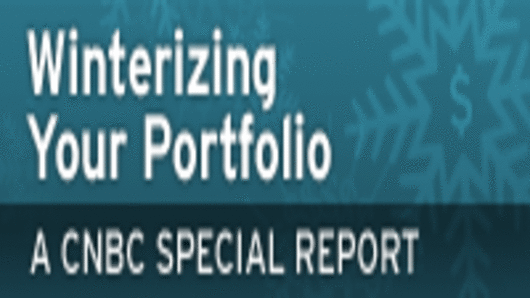Even as the US market continues to rally, many institutional investors are trimming their US holdings and putting more money in foreign stocks—especially those in emerging markets.
Expectations that the US economy faces slow growth in the years ahead—which likely means tepid gains for domestic stocks—have prompted more investors to look abroad for better growth opportunities.
A recent survey of major institutional investors by BofA-Merrill Lynch confirms this trend.
"We found a tremendous strategic desire to move away from US equities, particularly large-cap, and toward a more global mandate," analyst John Haugh wrote in a research note. "Emerging market equities are the most desirable asset class over the next 12 months, with 42% looking to add/increase investment."
The survey asked 111 institutional advisors with more than $1 trillion in assets under management for their coming investment strategies.
Decreasing their holdings of large-cap US stocks was the message from 39 percent of the advisors, which BofA-Merrill said could indicate $300 billion to $500 billion flowing out of that category over the next three to five years.
The survey also showed that institutional investors continue to believe in hedge funds, with Asia-based funds—excluding Japan—the most popular.
A shift to global assets has been a popular theme this week among analysts. Many believe the US rally is starting to wear thin and point to low volume on up days and higher volume for down days.
"We can't help but think that the tone of markets reflected in day-to-day trading of late is beginning to show at least a need for investors to pause, take some profits and ... seek the next catalyst that can drive the markets' direction into 2010," Ticonderoga Securities analyst John Stoltzfus wrote in a note to clients.
Mike O'Rourke, chief strategist at BTIG, points out that money is beginning to come out of money markets—down from the January 2009 peak of $3.9 trillion to the current level of $3.3 trillion.
But despite the recent gains, O'Rourke notes that US equity funds have experienced net outflows of $18 billions this year, coinciding with net inflows of $25 billion to foreign equity funds.
"With all of that cash coming out, one would think that some of it may have found its way to the equity funds but it has not," O'Rourke writes. "[D]espite the 65% rally in this market off its March low and the very real possibility that it was a generational low, investors continue to sell this market."
While the overall direction of the market is up for debate, portfolio managers have been emphasizing to their clients the importance of diversifying out of US-only assets.
Advisors are making sure their clients are committing at least 20 percent of their portfolios to foreign markets, with about a quarter of that devoted to emerging markets.
"We think international should be a material component in portfolios. It's important for diversification," says Beth Larson, principal at Evermay Wealth Management in Washington, D.C. "It probably should be a larger component than many individual clients think it should be."
Investors looking for foreign exposure are turning to the swelling numbers of exchange-traded funds dedicated to those markets.
The funds are divided into several categories and allow investing in foreign markets as a whole, specific countries within the group, and particular sector plays that are focused on international markets. Emerging markets—China, India, Brazil and a slew of others—make up a significant and increasingly popular component within the foreign market group.
The gains so far have been impressive. For example, the Vanguard Emerging Markets Fund , one of the more heavily traded broad-based funds, is up 59 percent in 2009, while the Standard & Poor's 500 is up only about 16 percent over the same period.
Still, some analysts caution that the international market could be overheating and may face the same kind of pullback expected in the US. For that reason, portfolio managers say you shouldn't go overboard in loading up on international stocks.
Bob Jergovic, CIO at CLS Investments in Omaha, Neb., advocates about a 30 percent portfolio allocation toward foreign markets, with half that to emerging countries. He favors broad plays in the area as well as specific ETFs that focus on Brazil and China.
Among his recommendations are an array of iShares funds: MSCI Emerging Markets Index; the S&P Latin America 40 Index; the MSCI Brazil Index and the FTSE/Xinhua China 25 Index.
"The important thing really is emerging market investments are part of a portfolio—they're never the whole portfolio," says . "Whether it's international investing in developed countries or emerging countries, it should always be always be a part of the portfolio, not all."






